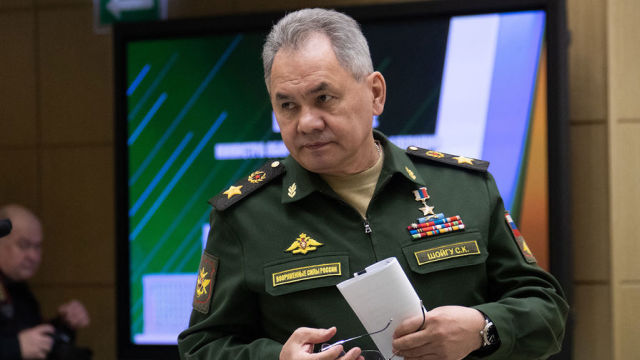Shoigu promised to respond to US medium-range missiles in Europe
Russia will respond if the United States places medium-range and shorter-range missiles in Europe, Russian Defense Minister Sergei Shoigu said. The minister also noted that Moscow considers it possible to restore a normal dialogue with NATO.
The deployment of medium-range and shorter-range missiles by the US Armed Forces in Europe, Japan and South Korea will cause an immediate reaction from Russia, Russian Defense Minister Sergei Shoigu said.
- the words of the minister are quoted by the newspaper "Moskovsky Komsomolets".
He also said earlier that in response to the US withdrawal from the INF Treaty, Moscow will begin to develop a ground-based version of the long-range Kalibr missile and a ground-based complex with a hypersonic missile.
Nevertheless, Shoigu stressed, Russia considers the restoration of a full-fledged dialogue with NATO possible, provided that it is equal.
In October 2020, the Russian ambassador to the United States, Anatoly Antonov, said that the US is ready to deploy intermediate-range and shorter-range missiles (INF).) In Europe, it poses a threat to regional and global security.
"We are developing hypersonic weapons, ballistic missile delivery systems ( ... ). We will deploy the same weapons, if necessary, in Europe to deter Russia," the assistant to the American president said during a speech at the Hudson Institute.
According to O'Brien, the deployment of missiles will not only deter an attack, but also put the US in a position where it can conduct real negotiations on arms control in the future.
"Just like in the 1980s, we deployed Pershing missiles and cruise missiles in Europe so that the Soviet Union would sit down at the negotiating table and agree to [discuss] the 'zero option' that preceded the INF Treaty, " he stressed.
On October 26, Vladimir Putin called on foreign states to develop deterrence tools based on the principles of reciprocity in the conditions of the termination of the INF Treaty. "We confirm our commitment to the moratorium on the deployment of the ground - based INF, which was previously announced by the Russian Federation," the Russian president said.
He said that Moscow will adhere to this position until Washington places its similar missile weapons in the relevant regions.
The Treaty on the Elimination of Intermediate-range and Shorter-range Missiles was signed by US President Ronald Reagan and General Secretary of the CPSU Central Committee Mikhail Gorbachev in Washington in 1987. The Soviet press called the treaty "the first step towards a nuclear-free world."
This document prohibited the use and creation of short-range (from 500 to 1 thousand km) and medium-range (from 1 thousand to 5,5 thousand km) missiles that could be placed on land. By the middle of the summer of 1991, the Soviet side had eliminated about 2 thousand missiles, and the Americans had destroyed 846 units. Subsequently, the disarmament process continued under the control of the military expert commissions of the two States.
On February 1, 2019, the then President of the United States, Donald Trump, announced that Washington was "suspending" the implementation of its obligations under the INF Treaty. Six months later, the United States withdrew from the Treaty because Russia allegedly violated it. In response, on February 2 of the same year, Vladimir Putin announced that Moscow was also suspending its participation in the INF Treaty.
close
Russian Defense Minister Sergei Shoigu
Russian Defense Minister Sergei Shoigu
RIA " Novosti"
Peter Nikolaev

